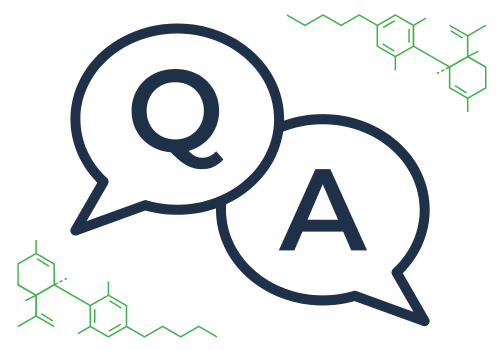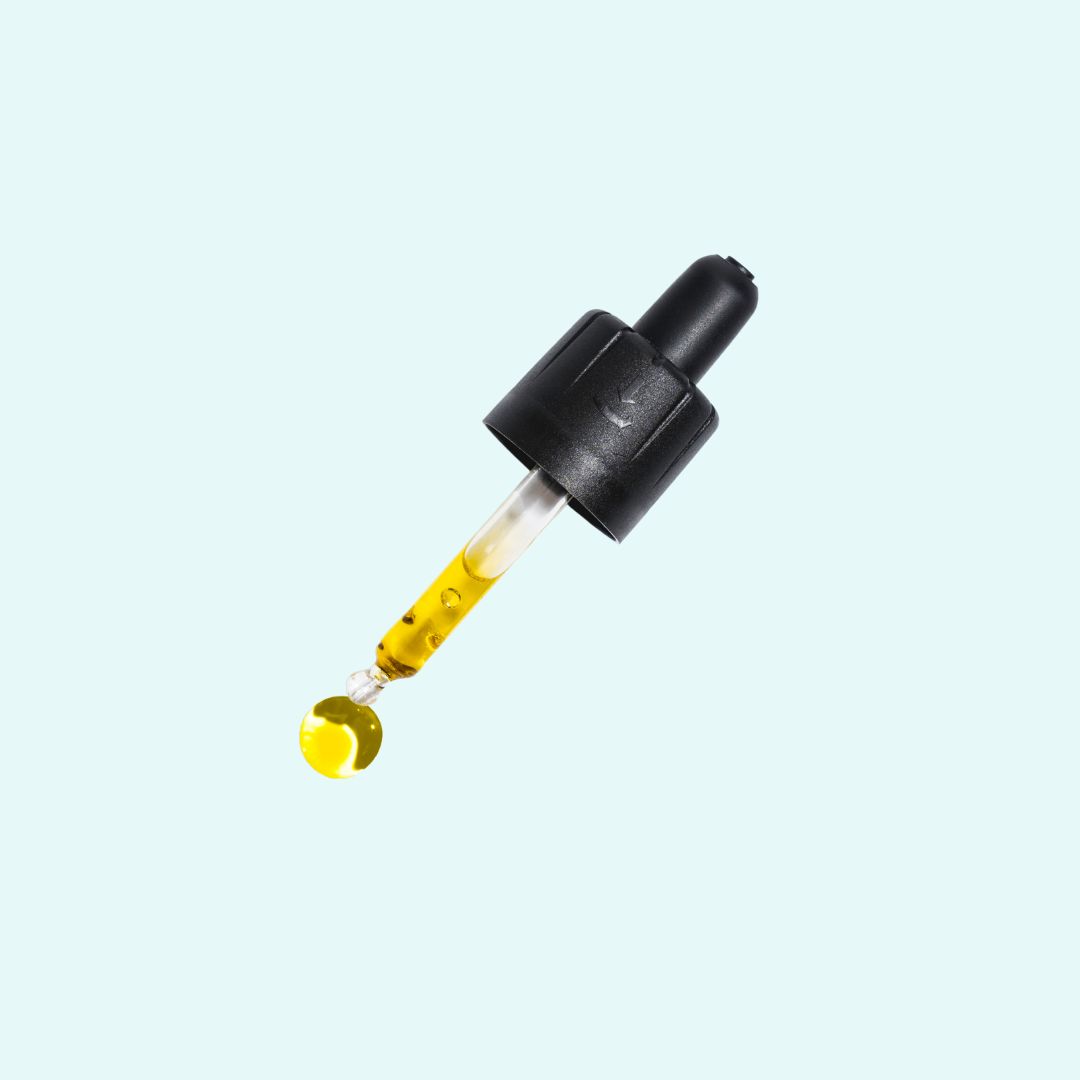What Is CBD Oil? A Science-Based Guide to Benefits, Uses, and Safety
CBD oil is a wellness supplement extracted from hemp plants, which are varieties of Cannabis sativa containing less than 0.3% THC. Cannabidiol (CBD) is one of over 100 naturally occurring compounds called cannabinoids found in cannabis plants.
Unlike THC (tetrahydrocannabinol), CBD is non-intoxicating and doesn’t produce psychoactive effects or a “high.” CBD oil is created by extracting cannabidiol from hemp and mixing it with a carrier oil such as MCT oil, hemp seed oil, or olive oil.
Full-Spectrum CBD Oil contains all naturally occurring cannabinoids, terpenes, and flavonoids from the hemp plant, including trace amounts of THC (less than 0.3%). This combination may create what researchers call the “entourage effect,” where compounds work together synergistically.
Broad-Spectrum CBD Oil includes multiple cannabinoids and terpenes but with all detectable THC removed. This option provides some potential entourage benefits while avoiding THC entirely. [View broad-spectrum options →]
CBD Isolate contains pure CBD with all other plant compounds removed, offering the most straightforward approach for those wanting only cannabidiol.
How CBD Works in the Body
CBD interacts with the body’s endocannabinoid system (ECS), a complex network that helps regulate various functions including sleep, mood, pain perception, and immune response. While CBD doesn’t directly bind to the main cannabinoid receptors (CB1 and CB2), research suggests it influences the ECS through several mechanisms:
- Enzyme inhibition: CBD may inhibit the FAAH enzyme, which breaks down anandamide, a naturally occurring cannabinoid
- Receptor interaction: CBD can interact with serotonin receptors (5-HT1A), which may contribute to its potential mood-related effects
- TRPV1 modulation: CBD may interact with vanilloid receptors involved in pain and inflammation signaling
It’s important to note that while research is promising, most studies are still in early stages. According to Peter Grinspoon, MD, cannabis specialist at Massachusetts General Hospital, the strongest scientific evidence about the health benefits of CBD has been found in the treatment of childhood epilepsy syndromes such as Dravet syndrome and Lennox-Gastaut syndrome.
Pain and Inflammation
Some research suggests CBD may have analgesic and anti-inflammatory properties. A 2018 review examined cannabinoids’ potential for chronic pain management, though more clinical trials are needed to establish definitive benefits and appropriate dosing.
Anxiety and Stress
Limited studies have explored CBD’s potential anxiolytic effects. One case series published in The Permanente Journal found that some participants experienced reduced anxiety scores after CBD use, though more controlled studies are needed to confirm these effects.
Sleep Quality
There is a lot of anecdotal evidence in addition to scientific research to suggest CBD may promote healthy sleep patterns. One large case series observed the effects of CBD in 72 adults with anxiety and sleep disorders. Sleep scores improved in 48 of the patients within the first month, though researchers note that more rigorous studies are required.
Many people find that taking CBD 30-60 minutes before bedtime fits well into their evening routine.
Other Areas of Research
Scientists are investigating CBD’s potential in various other areas, including:
- Neuroprotection
- Inflammatory conditions
- Substance use disorders
- Epilepsy (where it has FDA approval as Epidiolex)
CBD oil comes in various forms, each with different characteristics:
|
Typical Onset |
Duration |
Best For |
|
|
Tinctures/Drops |
15-45 minutes |
4-6 hours |
Flexible dosing |
|
Capsules |
30-90 minutes |
6-8 hours |
Consistent daily use |
|
Gummies |
30-120 minutes |
6-8 hours |
Convenient dosing |
|
Topicals |
15-30 minutes |
2-4 hours |
Localized application |
Dosing Guidelines
- Start with the lowest recommended dose (typically 5-10mg)
- Increase gradually over several days
- Keep a journal to track effects
- Dosing varies widely based on individual factors
- Consult healthcare providers for personalized guidance
Will CBD oil make me feel high? No. CBD is non-intoxicating and hemp-derived CBD contains less than 0.3% THC, insufficient to produce psychoactive effects.
How long does CBD stay in your system? This varies based on factors like dosage, frequency of use, and individual metabolism. CBD can typically be detected for 2-5 days after use.
Can I take CBD with other supplements? While generally safe, CBD can interact with certain supplements and medications. Consult a healthcare provider before combining CBD with other substances.

The Bottom Line
CBD oil shows promise in early research for various conditions, but more rigorous clinical trials are needed to establish definitive benefits and safety profiles. The strongest evidence currently exists for specific forms of epilepsy.
If you’re considering CBD oil, start with high-quality, lab-tested products and consult with a healthcare provider, especially if you have health conditions or take medications. Begin with low doses and monitor your body’s response.
Disclaimer: This information is for educational purposes only and should not replace professional medical advice. The FDA has not evaluated statements about CBD’s health benefits, and CBD products are not intended to diagnose, treat, cure, or prevent any disease.
Safety Considerations and Side Effects
Drowsiness or fatigue
Diarrhea
Changes in appetite
Dry mouth
Dizziness
Important Drug Interactions
CBD can affect how the liver processes certain medications by inhibiting cytochrome P450 enzymes. Always consult with a healthcare provider before use, especially with:
- Blood thinners (warfarin)
- Anti-seizure medications
- Some antidepressants
- Medications with grapefruit warnings
FDA Concerns
Studies have shown evidence of liver toxicity, interactions with certain medications, and possible harm to the male reproductive system. CBD exposure is particularly concerning for children and during pregnancy.

About the Author
Rick Bauer
C0-Founder, CBD Health Collection
Rick Bauer founded CBD Health Collection in Granville, Ohio, alongside his wife and children after 35 years in the pharmaceutical industry. His passion for CBD began when his son’s dog found relief from hip pain and anxiety with a CBD product—sparking a mission to explore natural alternatives to pain, inflammation, anxiety, and sleep challenges.
Today, Rick’s family-run company serves customers across the U.S. and internationally with science-driven, medical-grade CBD products. Trusted by healthcare providers and loved by everyday users, CBD Health Collection is committed to quality, education, and compassion.








